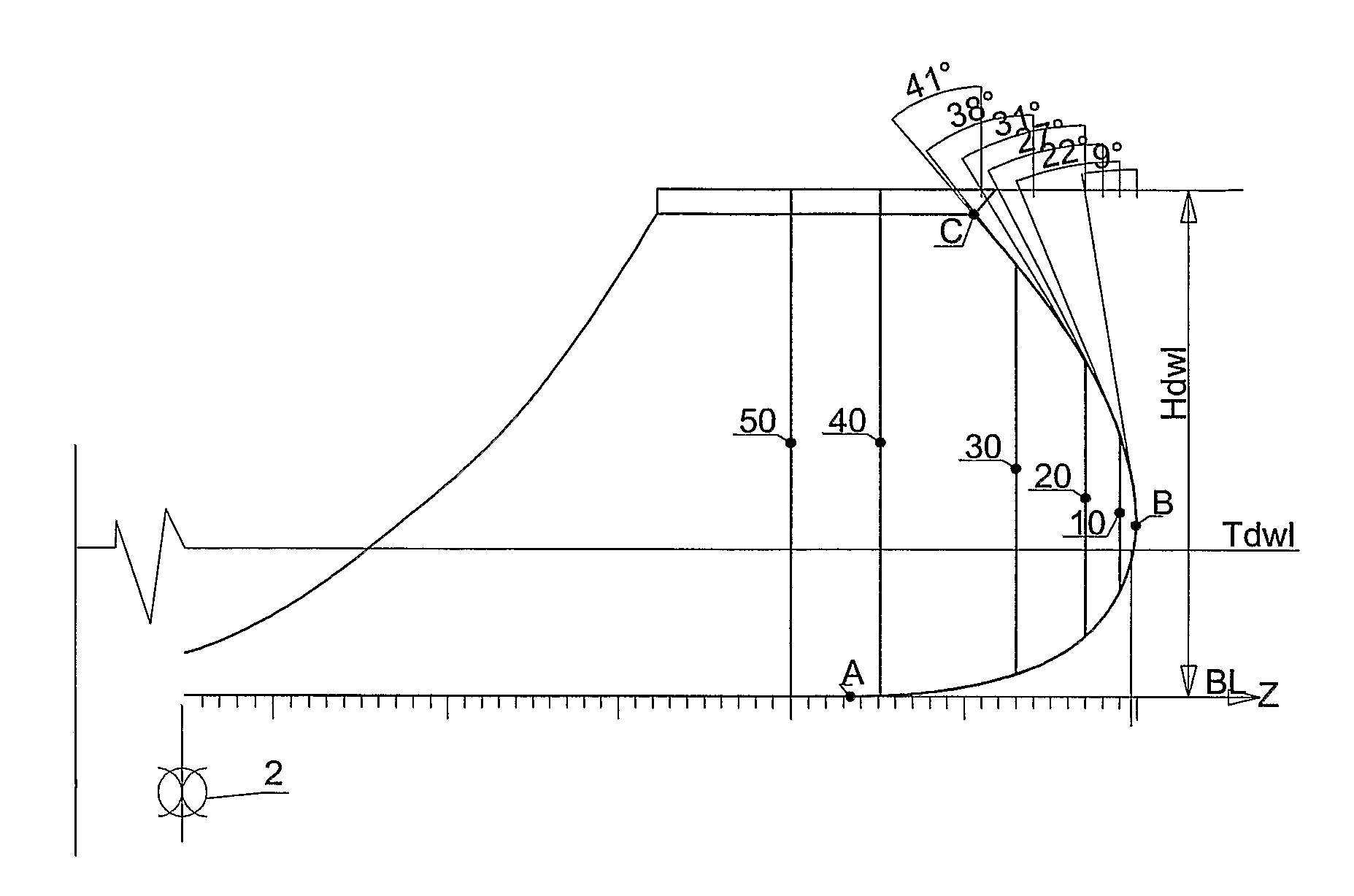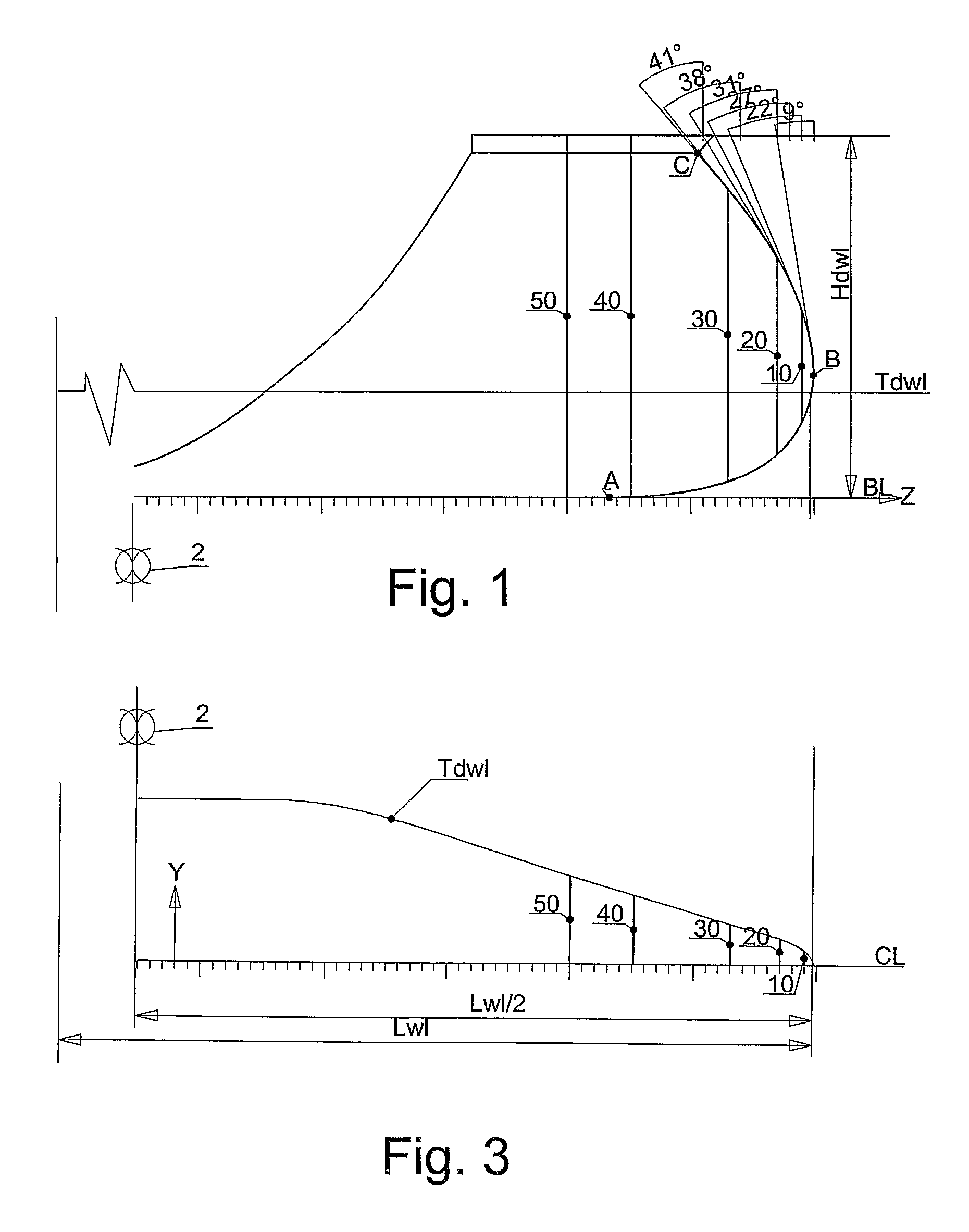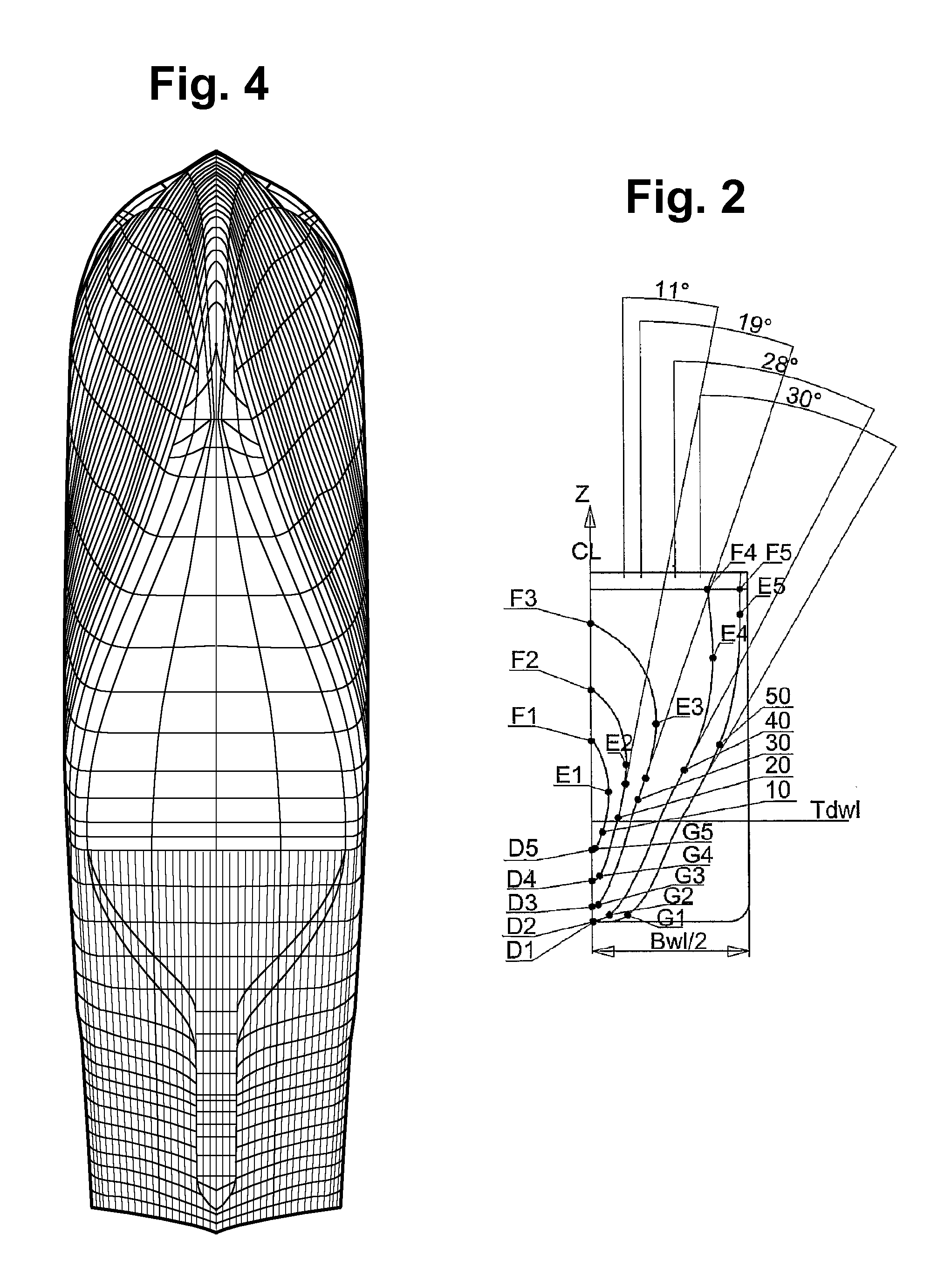Foreship arrangement for a vessel of the displacement type
a displacement type and foreship technology, applied in the field of new design of the foreship of the displacement type of the vessel, can solve the problems of generating a large amount of spray, causing energy loss, and subjecting the vessel to the occurrence of green water, and achieve the effect of simplifying the installation of de-icing equipmen
- Summary
- Abstract
- Description
- Claims
- Application Information
AI Technical Summary
Benefits of technology
Problems solved by technology
Method used
Image
Examples
Embodiment Construction
[0038]In the following description and in the claims, unless otherwise specified, all disclosures of direction are explained on the basis that the vessel is in a three-dimensional coordinate system where the vessel's length direction, breadth direction and height direction correspond respectively to the x-axis, y-axis and z-axis of the coordinate system, wherein the x-axis and the y-axis are oriented in the horizontal plane whilst the z-axis is oriented in the vertical plane. Furthermore, the forward direction of the ship corresponds to the positive x-direction.
[0039]The new foreship, shown from the midship mark 2 of the vessel, has a slender and distinctive bow shape. FIG. 1 shows the vessel's stem line 1, which starts at the base line 3 at point A and then rises with an increasing curvature whilst being drawn forwards in the length direction (x-direction) to a point B slightly above the design water line, Tdwl. From point B, the stem line 1 rises further, but now with a diminishin...
PUM
 Login to View More
Login to View More Abstract
Description
Claims
Application Information
 Login to View More
Login to View More - R&D
- Intellectual Property
- Life Sciences
- Materials
- Tech Scout
- Unparalleled Data Quality
- Higher Quality Content
- 60% Fewer Hallucinations
Browse by: Latest US Patents, China's latest patents, Technical Efficacy Thesaurus, Application Domain, Technology Topic, Popular Technical Reports.
© 2025 PatSnap. All rights reserved.Legal|Privacy policy|Modern Slavery Act Transparency Statement|Sitemap|About US| Contact US: help@patsnap.com



